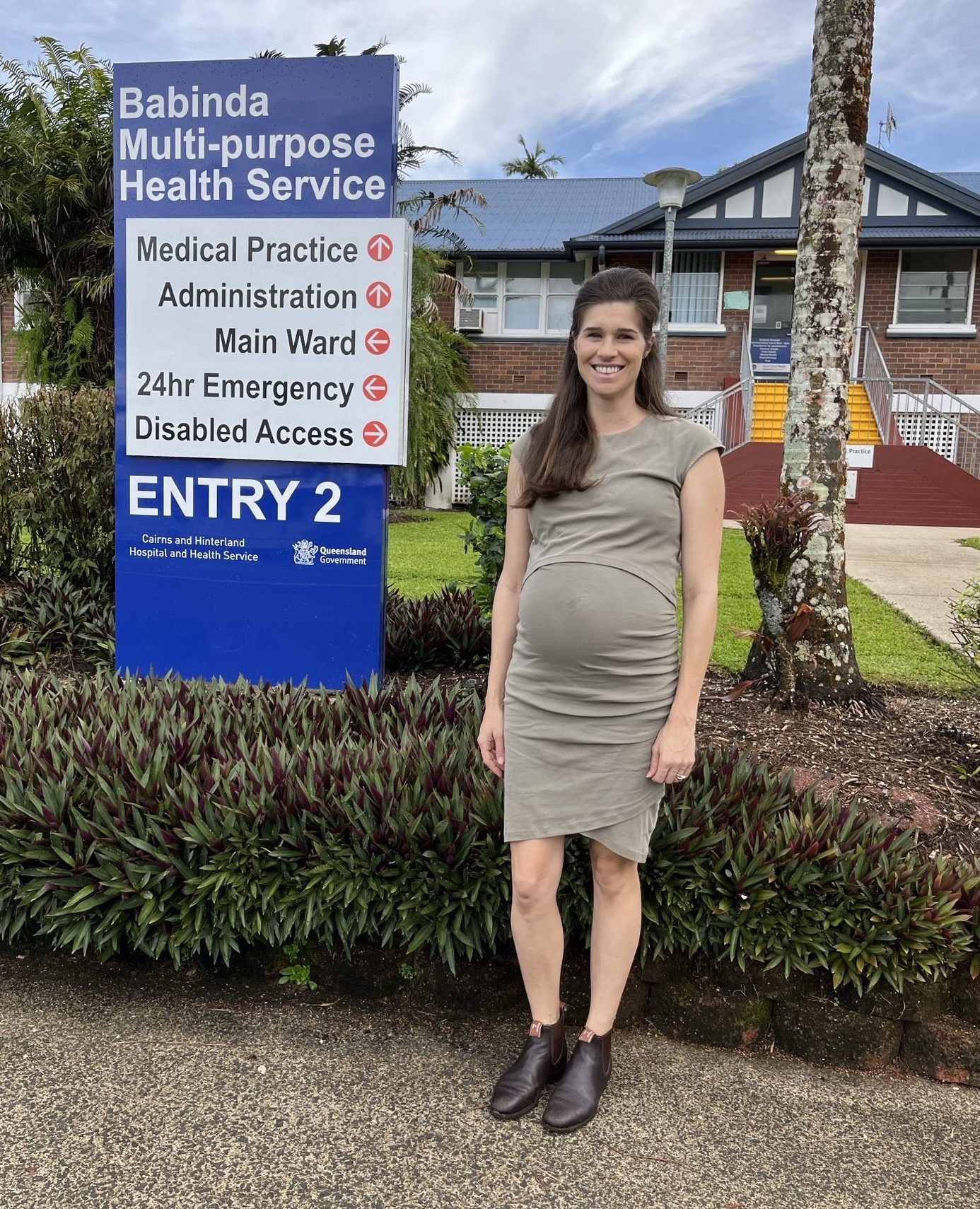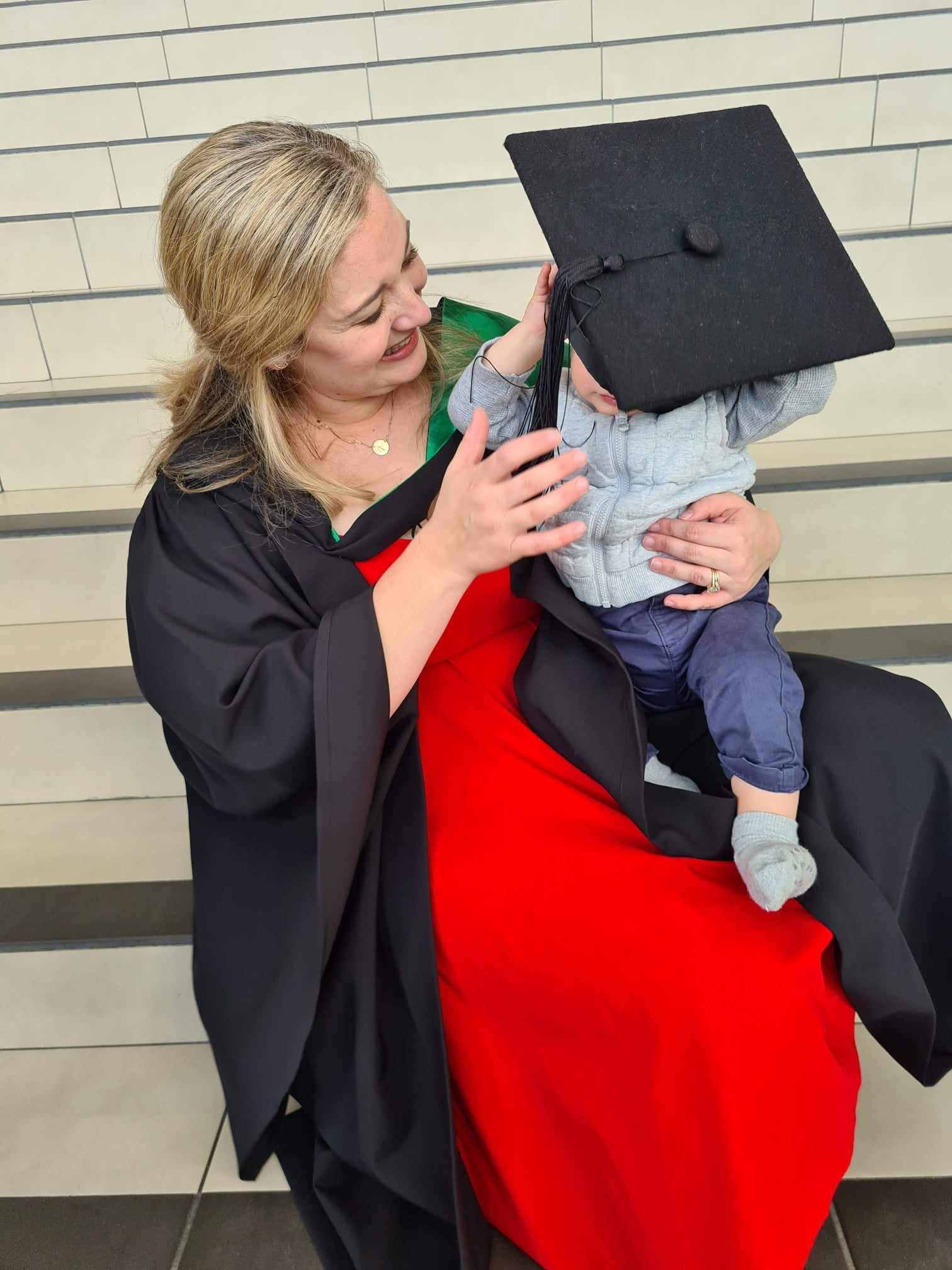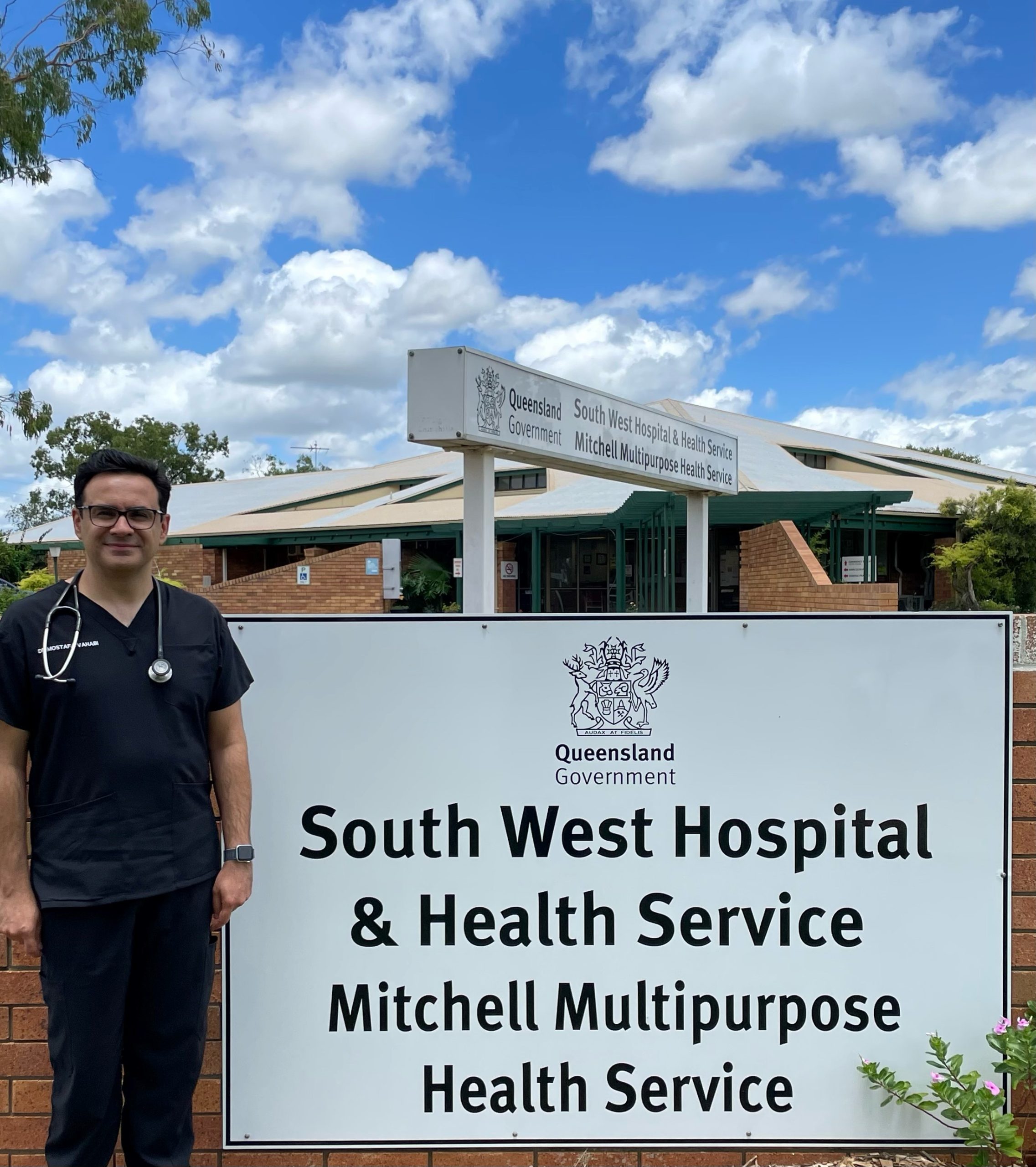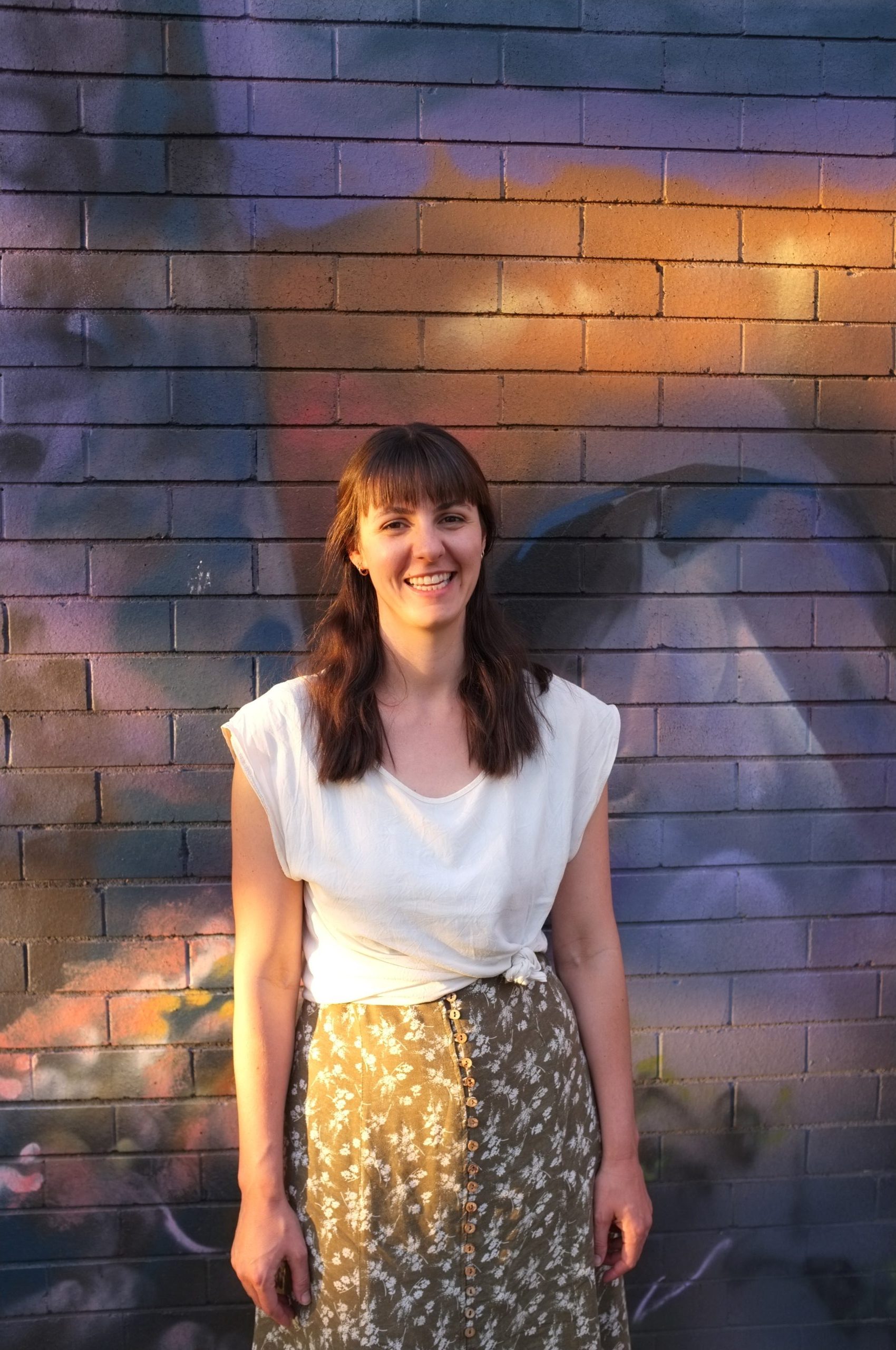For many of us, the start of a new year brings an influx of new faces joining our communities and workplaces. Anyone who has lived rurally for any length of time, knows some of the new faces will stay a short time, whilst others stay a lifetime. You might be the fresh face this year, or maybe you will be the one welcoming a newcomer and their families.
We asked some of our seasoned RGs, and those in training, to share their thoughts on how they welcome new faces into their workplaces and communities, what is important as a newcomer, and how we can maintain momentum in establishing these connections, not just for this year but for years to come.
Dr Marlow Coates, Executive Director of Medical Services on Thursday Island shared that for him it is all about going that extra mile. “Take a personal interest in ensuring their house is clean and has the basics, pick them up from the airport when they arrive, organise a welcome dinner with close team members from work.”
As time progresses, he focuses on the practical aspects and helping new team members enjoy life in their new home. “I usually take them fishing, support early applications for schools et cetera and provide local insights where I can. I’m happy to help them buy a boat that isn’t a lemon, or a 4wd that is suitable for terrain, or a pony for the kids.” He feels these personal touches go a long way toward helping newcomers and their families feel settled. He recognises the importance of fostering a connection with a social circle according to interests, to build a life outside of work.
Many of these points were also emphasised by Dr Nikita Shanley, Director of Medical Services in Roma. Nikita adds that, “line manager priorities lay in supporting and encouraging new staff to book an early holiday and lock in upskilling opportunities soon after their arrival at a remote location as ‘cabin fever’ can set in early and maintenance of skills is paramount. Equally as important is fostering professional relationships – take the time to introduce your staff to their hospital and primary care colleagues, the broader team, and to visiting specialists”. Marlow points out, “we are physically remote, but not professionally, so helping newcomers build a network is seen as a key part of helping them settle in”.
In the longer-term Marlow and Nikita highlight the importance of supporting the person’s scope and development (subject to service capacity and strategy) in accordance with their professional development plan. “Helping newcomers to know that they can grow remotely and will be supported is important for their personal satisfaction and retention.”
Having recently relocated to Babinda with her children and husband, Dr Carolyn Belonogoff shares that having a sense of community with colleagues is the most appealing part of the job. “Creating social connections is a vitally important part of helping new staff and families feel welcome and enjoy coming to work. I know that everyone has their own lives going on, but it makes a huge difference when moving to a new place when the senior colleagues organise outside of work get togethers for people/their family. It may be a bit of work initially when you’re getting new people through, but as soon as it’s established others can take on the organiser role.”
Carolyn underlines the importance of orientation, supervision, and support in those first few weeks and months. “It is important for our first exposure to a new place to have someone who really explains things. Who do we refer to, when should we be referring/escalating, what do we keep here, what are the local ‘politics’ to be aware of. Being left alone, without guidance or support in a new place doesn’t make for a very good first impression.”
Dr Renee Cremen, Director of Medical Services at Babinda, echoes many of Carolyn’s sentiments around the importance of social connection and adequate orientation and support. “Although I’ve now been in Babinda 12 years, I recall the first few days of each of the locations I have worked. They all varied widely in terms of their approach to welcoming newcomers, but those that stood out are the ones that made effort to connect on a personal level, paid attention to the practical details of settling us in and provided dedicated orientation time with up front support. I now recognise the personal effort all of this takes from those people doing the welcoming and orientating. Understandably it can get fatiguing over time – it’s important to share these responsibilities amongst the team so the experience for new staff continues to be as we would want it to be.”
Having seen many new staff come and go over the years, as well as being involved in the Cairns intern and JCU medical student rural rotation orientations, Renee recognised in herself that “fresh face fatigue” has at times made it hard to keep welcoming newcomer after newcomer with the same gusto. This led her to seek out new perspectives. “I decided I needed to come up with a welcome and orientation plan that I could sustain, make it as stress free as possible and emphasise opportunities for meaningful connection day to day. For me this means calving out enough time for orientation, supervision and exam support up front, utilising my team and planning in advance social events throughout the year – ones that both I and my family and my new and existing staff could all enjoy together.”
Renee shared that what helped her “fresh face fatigue” the most was changing her expectations and focus from wanting to simply retain staff, to making meaningful connections with the individual and their family, to facilitate a positive personal and professional experience. “That way regardless of how long they might choose to stay I know they will remember being welcomed and supported in the same way I’d appreciate if it was me in their shoes.”
As the new year marches on we encourage you to pause and reflect on how you and your facility welcome newcomers and how the examples above might help you best direct your efforts for the fresh faces joining your workplace now and for years to come.
Reflective questions for you to ponder:
- What do you/your facility do to welcome newcomers?
- Who looks after things like accommodation/food/transport (the basics) for newcomers, how well are they attended to? Could this be optimised?
- What does your orientation and support for new staff look like? Could this be optimised?
- How do you involve newcomers in social events/community happenings? Is this something that is planned in advance? Or ad hoc? Who’s responsibility is it? Is it working?
- What has been helpful/meaningful to you when you started a new job? How could you incorporate this into what you do?
- Could you consider surveying newcomers to see what their experience was like and get their ideas on what could be improved?
- Can I sustain what I am doing in this space over time? Do I need to adjust to make it more sustainable?
Thanks to everyone for sharing their reflections with us for this article. If you have any other tips, please feel free to share them with us.
Dr Ebonney van der Meer | Rural Generalist Training Advisor







